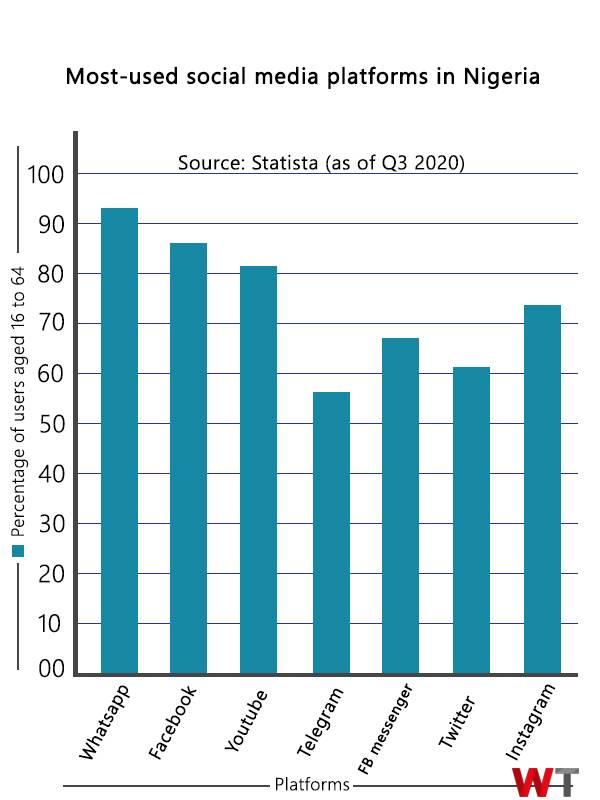As Twitter Is Restored In Nigeria 222 Days Later, Losses Are Counted

As Nigerians settled into the evening of Friday, June 4, 2021, word got out that the government had taken extreme measures against Twitter, which is sort of the world’s most influential social media platform.
As the clock struck midnight the following day, Twitter became inaccessible from Nigeria indefinitely. The ban on Twitter happened after the global tech giant deleted a tweet addressing a secessionist agenda by the unpopular President Muhammadu Buhari; a tweet that was perceived as disturbing and incendiary.
Government officials labelled Twitter as a threat to the nation’s sovereignty while accusing the platform of siding with bad actors. The Twitter ban would draw outrage and criticism – from ordinary Nigerians to global institutions, all of which fell on deaf ears.
And so it happened that 222 days would pass before the Nigerian government walked back the Twitter ban, claiming to have gotten Twitter to agree to several big concessions – all of which the company has neither confirmed nor denied, though there’s reason to believe government officials are doing some puffery. (WeeTracker reached out to Twitter on this note but they are yet to respond as of press time).
But as Nigerians welcome the respite of ditching the battery-draining VPNs they have had to rely on to be able to access Twitter for the last 7+ months, there’s already been some considerable, not-so-reversible damage suffered by ordinary citizens and the Small and Medium Enterprises (SMEs) that contribute 48 percent of national GDP, account for 96 percent of businesses and 84 percent of employment in Nigeria.
Twitter certainly wasn’t the same in Nigeria after the ban and for the entire duration of it. The consequence of the Twitter ban in Nigeria is an obvious recurring theme of missed opportunities on the part of not just the influencers or amplifiers, but also businesses and the workforce, end-consumers, and the country’s ailing economy in general. Using NetBlocks estimates, Nigeria would have lost USD 1.33 B for the entire 222 days of the ban – losing just over USD 6 M per day.
Among social media platforms accessed in Nigeria, Twitter may be lagging behind in terms of users, but it remains nonpareil when it comes to the kind of speedy virality that drives momentum in this era of fast-paced information, conversation, business, and commerce.

For instance, at the onset of the coronavirus pandemic, Twitter was front-and-centre of the earliest government efforts aimed at driving awareness about the virus. Similarly, before the ban, it was the unofficial podium on which Nigerian government officials issued public statements.
For businesses, Twitter is something of the ultimate customer engagement portal, especially for business-to-customer (B2C) products. The platform’s unique mix of text, image, video, and voice, as well as features that allow for coordinated public interaction and virality, also makes it an unrivalled behaviour modulator for even the biggest of brands in the face of customer complaints.
All in all, Twitter serves as a great enabler of commerce, for both newer and established brands. It’s why some multinational companies/brands resolved to hand over control of their Nigerian Twitter accounts to handlers based abroad, in a manner that was a little too on the nose.
NOI Polls estimates that 39.6 million Nigerians use Twitter – 20 percent of them for business advertisement and 18 percent to look for employment.
The extent of losses suffered for the duration of the ban would have especially hit young Nigerians, among whom there is a 45 percent unemployment rate. The population of small businesses that may have become casualties or suffered setbacks, or worse, untimely demises, due to the ban is another agonising matter.
Some influencers who spoke to WeeTracker previously reported a heavy drop in their daily active followers, as well as significant reductions in account growth, engagements and impressions, by extension.
One relatable statistic used in Nigerian pop culture to epitomise the regression suffered is the fact that engagements around one of the most popular reality TV shows out of Africa, Big Brother Naija (BBNaija), shrunk uncharacteristically last year; the show took place in the middle of the Twitter ban.
Often a crowd puller, BBNaija show recorded an online audience reach of over 10 billion and yielded 62.3 billion digital impressions in the 2020 season, but that metric fell to 41.7 billion impressions in the 2021 season, predictaby due to the Twitter ban.
Ordinary citizens, professionals, experts and officials in the political minority repeatedly warned about the Twitter ban in relation to the economic losses resulting from shutting down a source of livelihood for many Nigerians, as well as its effect in obstructing liberties around information and free speech. And as Twitter access is restored in Nigeria, the losses are now being counted.
Featured Image Courtesy: BuzzfeedNews